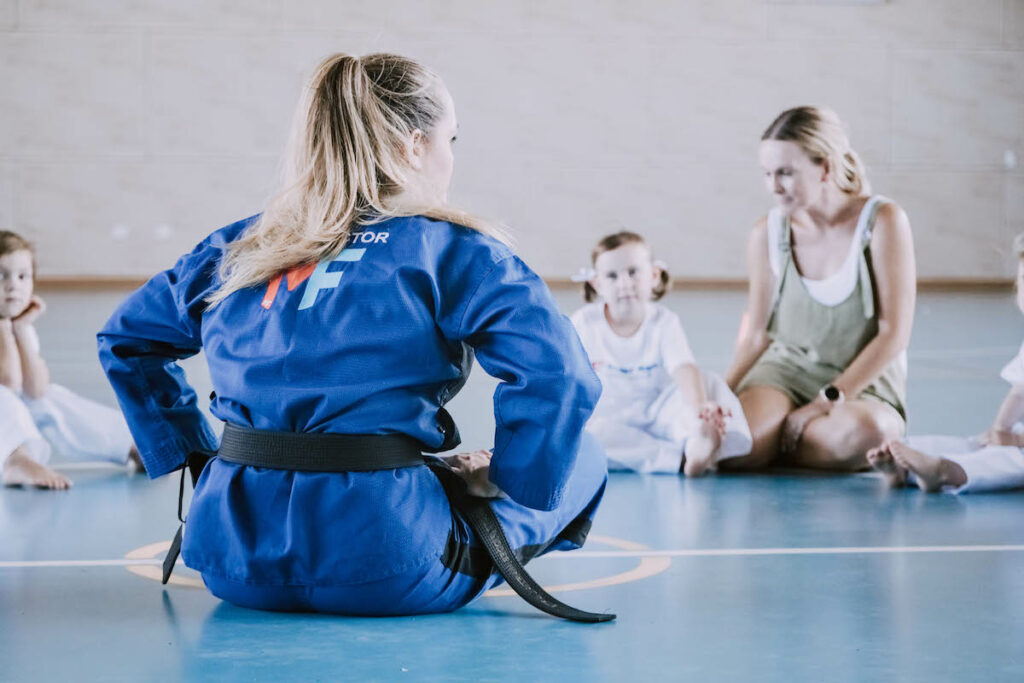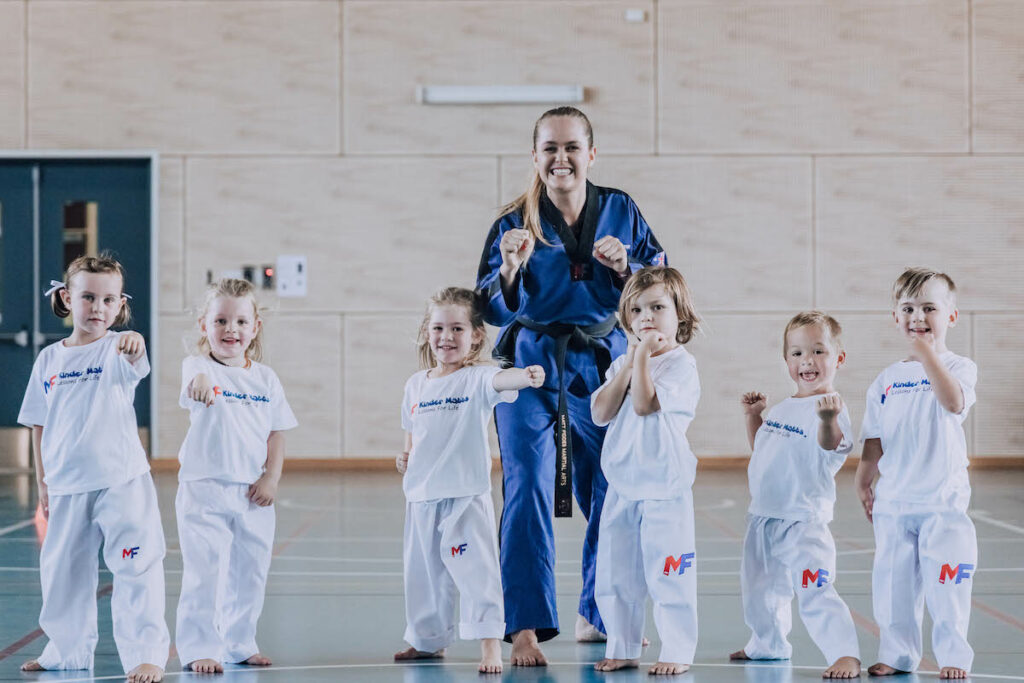
Kinder Matts is a learning curriculum that combines the discipline and fitness of Martial Arts, with life skills and values that your family shares. This unique program allows for parental involvement, together with your child you will engage in activities that will not only create resilience and awareness, but will also help strengthen the bond between parent and child.
Classes build on a strong foundation of learning and develop communication, cognitive, social, emotional and physical skills. Through focused discussion and a structured learning syllabus, children will develop skills such as cooperation, following directions, sharing and taking turns are developed. Awareness of spatial and perceptual concepts, self-expression and a greater independence are encouraged and celebrated.
More to Martial Arts than just kicking and punching. The common thought is that Martial Art just teaches your child self-defence, but the truth is there is so much more. The physical skills learnt in Martial Arts transfer to other sports and activities, while the life skills and values will stay with your child for a long time. Read below to see how our Kinder Matts program can help the development of your child as we introduce them to physical exercise and movement, and structured learning.

KINDER MATTS AGE GUIDE
PARENTAL ASSISTANCE - 2.5 TO 3 YEARS OLD
This curriculum is designed to explore basic motor and social skills, increase physical strength, flexibility and coordination by employing introductory martial art skills and fitness concepts.
LIMITED PARENTAL ASSISTANCE - 3 YEARS TO 4 YEARS
This class is designed to nurture your child’s independence and encourages a positive attitude toward physical exercise through basic martial arts techniques, sports and fitness concepts.
NOTE: Please note that every child is different and we encourage parents to book their child into the program that suits their learning style the most.
Physical Development Milestones
- Early development of basic muscles – legs, arms, abs and cardiovascular/muscular endurance.
- Early development of alternating feet and hands.
- Early development of spatial awareness.
- Early development of distance.
- Early development of movement in various directions.
Intellectual Development Milestones
- Early development of following directions.
- Early development of counting physical movements.
- Early development of paying attention despite distractions around them.
- Early development of retaining information such as new words, commands, definitions and movements.
- Early development of understanding consequences of action, movement and behaviour.
Emotional Development Milestones
- Early development of building a positive attitude – “I can do it”
- Early development of controlling emotions when they are challenged.
- Early development of embracing excitement in healthy competition.
- Early development of facing fears and trying new things.
- Early development of feeling a sense of independence.
Social Development Milestones
- Early development of taking turns.
- Early development of communicating with instructors and peers.
- Early development of ‘fair play’ and ‘sportsmanship’
- Early development of patience.
- Early development of enjoying activities with others.

